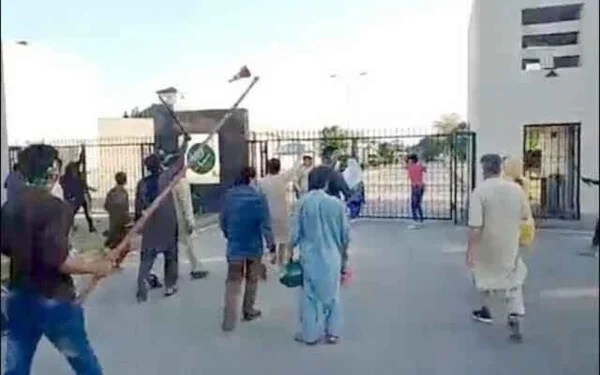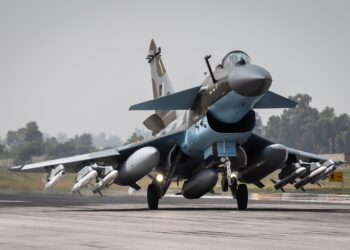Introduction: A Crucial Day in the Legal Proceedings of May 9 Cases
Rawalpindi: In a significant development, 12 key cases linked to the violent events of May 9, 2023, including the high-profile General Headquarters (GHQ) attack case, are set to be heard today in the Anti-Terrorism Court (ATC) Rawalpindi. These hearings mark an important phase in the judicial process that seeks to hold accountable those involved in the unprecedented attacks on sensitive military and government installations during nationwide protests.
Court Proceedings and Case Overview
According to court officials, all 12 cases are scheduled to be heard by ATC Judge Amjad Ali Shah. The proceedings will take place in the Anti-Terrorism Court located within the Rawalpindi District Court premises. Of the 12 cases, 11 are at the stage where charge sheets (challans) will be distributed to the remaining accused, while the GHQ attack case is scheduled for a court hearing to resolve procedural delays.
The cases are part of a broader legal crackdown initiated following the nationwide unrest that erupted after the arrest of former Prime Minister Imran Khan on May 9, 2023. The protests escalated into violent confrontations with law enforcement and attacks on government and military facilities, drawing national and international condemnation.
Strict Security Measures in Place
Given the sensitivity of the cases and the potential security risks, authorities have deployed strict security around the Rawalpindi District Court. Heavy police contingents and paramilitary forces are stationed at various checkpoints to ensure law and order is maintained throughout the day. Entry into the court premises is being strictly monitored, with only authorized personnel and legal representatives being allowed access.
GHQ Attack Case: A Focus of Legal Attention
Among the 12 cases, the GHQ attack holds particular significance due to its symbolic and strategic importance. The GHQ in Rawalpindi serves as the nerve center of Pakistan’s military operations, and its breach on May 9 shocked the nation.
Sources close to the court revealed that the GHQ attack case had been stalled for the past two months, raising concerns about procedural delays. Taking notice of the stagnation, the presiding judge moved the case to the courtroom to expedite the process and ensure timely justice.
Background: The May 9 Protests and Their Aftermath
On May 9, 2023, Pakistan witnessed a wave of violent protests following the dramatic arrest of Imran Khan from the Islamabad High Court premises by paramilitary forces. The arrest triggered widespread unrest, particularly among Pakistan Tehreek-e-Insaf (PTI) supporters, who took to the streets across the country.
Protesters attacked and vandalized key government buildings, police stations, and military installations, including the Corps Commander House in Lahore, the Radio Pakistan building in Peshawar, and the GHQ in Rawalpindi. The scale and intensity of the violence were unprecedented, prompting the federal government to launch a nationwide crackdown under anti-terrorism laws.
Distribution of Challans and Indictment Process
According to court sources, today’s hearing will focus primarily on the distribution of challans (official charge sheets) to the remaining accused in 11 of the 12 cases. This procedural step is a prerequisite to moving forward with the formal indictment of the accused.
Once the challan distribution is complete, the court is expected to set dates for framing charges, marking a new phase in the prosecution process. Legal experts view this as a critical step in ensuring transparency and adherence to due process.
Legal and Political Implications
The outcome of these cases will have far-reaching implications for Pakistan’s legal and political landscape. The prosecution of individuals involved in attacks on military installations is seen as a litmus test for the state’s resolve in upholding the rule of law and protecting national institutions.
For the PTI, many of whose supporters have been implicated in the May 9 events, the legal proceedings represent a serious challenge. The party leadership has consistently denied orchestrating the violence, claiming political victimization. However, security agencies have insisted that the attacks were premeditated and coordinated.
Human Rights Concerns and Legal Defense
Human rights organizations have raised concerns about due process, alleging that some arrests were arbitrary and that detainees were denied legal representation. In response, the judiciary has emphasized the importance of fair trials and has directed law enforcement agencies to follow legal procedures strictly.
Several defense attorneys representing the accused have argued that their clients were not present at the protest sites and have demanded the release of CCTV footage and other evidence to substantiate the allegations.
Public Reaction and Media Coverage
The May 9 incidents remain a deeply polarizing issue in Pakistan. While many citizens view the attacks as a betrayal of national trust, PTI supporters continue to rally behind Imran Khan and demand his release. Media coverage of the ongoing trials has kept the public engaged, with televised debates and social media discussions reflecting the nation’s divided opinions.
Conclusion: A Defining Moment for Accountability
Today’s hearings in the Anti-Terrorism Court Rawalpindi mark a significant chapter in Pakistan’s quest for accountability following the traumatic events of May 9, 2023. As the legal process moves forward, the distribution of challans and the revival of the GHQ attack case signal the judiciary’s commitment to addressing one of the most serious challenges to state authority in recent history. The outcomes of these proceedings will likely shape public trust in the justice system and set precedents for how the country deals with civil unrest and institutional attacks in the future.

























